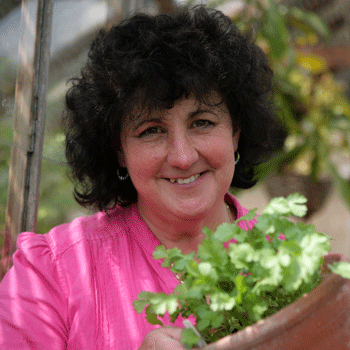How to keep Britain growing
By Rachel Anderson

Last year’s lockdown gave many people the opportunity to discover (or, in some cases, rediscover) gardening. This year, the horticulture industry must continue to capture the interest of these welcome new hobbyists, discusses Rachel Anderson.
When we first went into lockdown last March (2020) many people suddenly found themselves with more time to spend on hobbies and leisure pursuits. Broadcaster and Horticultural Trades Association (HTA) horticulture manager Pippa Greenwood discussed the hobbies that “topped the bill.”

Speaking at the HTA’s online Garden Press Event this March, she revealed that (as suggested by Google trends search data) learning a language took the number one spot whilst training with resistance bands was in second place. DIY came third whilst yoga and baking were in fourth and fifth place. Gardening came in at number six.
Looking at:
- my subscription to the language app Duolingo,
- growing collection of home gym equipment,
- redecorated house,
- weekly yoga Zoom yoga class,
- expanding waistline (despite the yoga and home gym) due to my daughter’s regular baking of “frog cakes” or whichever calorific baked good is currently trending on TikTok, and
- my newly landscaped garden
It’s good to know that I’m a trend setter.
But, in all seriousness, gardening being on this list of most popular hobbies has led to some three million new gardeners in the UK – news that’s sweeter than any frog cake. As Pippa reported: “It’s all aspects of gardening that have done well. Grow Your Own in particular has really seen a surge and in June 2020 some 38% of the British public reckoned that they were growing at least part of their own food. That’s a 7% increase since the year before.”
She added: “Sales of hardy plants, shrubs and trees were up about 60% in October 2020 whilst houseplants, tools, gardening products were up around 52% and plant care products increased by about 41%. And then topping the bill we have seed sales with a massive 84% increase.”
“That’s pretty impressive. People wouldn’t be spending their hard-earned cash on those things if they didn’t really want to – and it’s all part of this fantastic boom in gardening and general interest in the great outdoors.”
Wisely, Pippa warned that: “We’ve got to make sure that each and every one [of those new gardeners] stays gardening. We’ve got to keep Britain growing and keep them smiling while they are at it.”
Happy Plants’ Natalie Porter, speaking earlier this year at the British Protected Ornamentals Association (BPOA) spring online conference, also asserted that the industry must tap into the needs of new customers.
She noted that the pandemic has created a different set of gardening customers, which she has loosely grouped into three categories, namely:
- the Houseproud Hincher, who has moved his/her interest in home interiors to the exterior/the garden – such as by dotting their patios with “instant impact” plant pots
- the Evolved Elderly – core customers who most likely became more confident using the internet during lockdown (having had to buy their weekly shop online, for example) and who may now be buying their plants online
- The Houseplant Parent, who has filled their home with houseplants and is likely to have an interest in urban plantings scheme, allotments/growing their own. They are influenced by [a product’s] sustainability credentials and love “how to” videos on YouTube and TikTok etc
As Natalie asserted: “We need to get to grips with who these customers are. We [the horticulture industry] need to keep evolving and keep moving to keep up with the very different customers we are going to face from here-on in.”
“Each category of horticulture needs to consider how accessible and appealing it is to each of these evolved customers.”
Using bedding plants as an example, Natalie noted that the Evolved Elderly might now like to purchase them online rather than take a trip to their local garden centre. Houseproud Hinchers, meanwhile, could be an ideal future bedding plant customer as they look to redecorate their garden with bright colours.
Natalie said: “They don’t have any preconceptions over perceived value, so this could be a good way to find a better margin.”
As growers are all too aware, bedding plants have been suffering a “price compression” for several decades. But, said Natalie, “if you look at a pack of impatiens it has a ceiling price of £0.99. But with this customer, you can take four impatiens, put them in a bell pot, and possible sell it for £10-£20.”
And so, the resounding message to those who grow and sells plants is that you need to get creative. Clearly, many more people are now realising how great gardening is and, if you continue to hold their interest, the horticulture industry will benefit and – who knows? – maybe gardening can overtake the likes of language learning and resistance bands to become the number one hobby in the UK.
